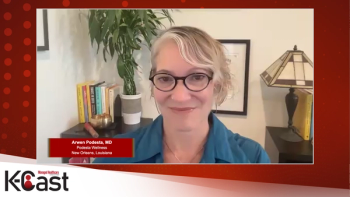
Surprising Perceptions About Mental Health
Why mental health deserves more focus.
Mental and physical health should be viewed as equally important, according to the results of a new survey.
Universal Health Services, Inc., providers of acute and behavioral health services, recently commissioned a national survey of 1,015 U.S. adults and found that 71.1% believed that mental and physical health should be viewed as equally important.
The top four specific conditions cited as most concerning include:
- Cancer
- Depression
- Anxiety
- Heart disease
Barriers to care-such as stigma associated with mental health-still exist and need to be addressed, according to the survey.
Nearly all respondents (96.8%) stated that mental health conditions represent legitimate medical illnesses and, like chronic physical disorders, can be effectively treated and managed (94.4%).
More than 60% of respondents aged 44 and younger (and 69.4% among those aged 18 to 24 years) have suffered from, or care about someone that suffered from, mental illness in the past 12 months. This percentage decreases as age increases (20% among those aged 65+).
Related article:
“The poll results reinforce that as a society we must cultivate a culture where it is acceptable to ask for help, find healing, and build resilience,” said Karen E. Johnson, senior vice president, clinical services and division compliance officer, Behavioral Health, Universal Health Services. “The hope is that, as growing numbers of people courageously come forward about their own challenges, more progress will be made by the healthcare industry as well as the general public in eliminating the stigma of mental illness.”
Other findings include:
- Clear majorities reported knowing where to turn for mental health support (70.7%) and stating that they would voluntarily see a mental health professional to get help (72.8%).
- Significant pluralities (48.8%) stated that individuals diagnosed with some form of mental illness are still treated differently than individuals with physical illnesses because people generally don’t understand mental illness.
- Nearly 55% of respondents identified cost and insurance coverage limitations as the main impediments to mental health treatment, with 25% citing embarrassment and stigma. Among respondents who stated they would voluntarily seek help, approximately one in four cited lack of access as the primary reason they would not pursue such care.
- Approximately one in four respondents did not believe depression, anxiety, substance use, eating disorders, or autism were a form of mental illness.
Newsletter
Get the latest industry news, event updates, and more from Managed healthcare Executive.



















